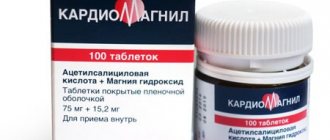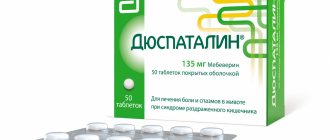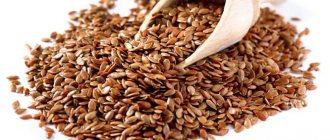Gastritis is a stomach disease with very unpleasant symptoms, the manifestation of which every patient who has encountered them wants to reduce.
Medicines that neutralize the symptoms of gastritis should have a mild effect and not cause side effects. The optimal drugs are those that show their effect over a fairly long period of time.
An important nuance in this case is the ratio of price and quality. One of the drugs recommended by gastroenterologists for stomach diseases is Almagel.
Pharmacological action, pharmacodynamics and pharmacokinetics
The mechanism of action of the drug is based on suppressing the activity of pepsin and neutralizing hydrochloric acid secreted in the stomach, due to which it achieves optimal pH values. Almagel also has adsorbing and enveloping effects. It forms a protective film on the gastric walls, which has a pronounced protective effect.
The active substances in the drug are not absorbed into the systemic circulation and act only locally.
The effect of using Almagel is observed within 5 minutes after taking it and lasts up to 1-1.5 hours. The duration of action depends on food intake and the individual characteristics of the body.
Description of the drug
Almagel is among the antacids
The main accompanying processes of gastritis are increased secretion of gastric juice and sensitivity of the mucous walls of the organ. As a result, pain appears, a feeling of heaviness after eating and other unpleasant symptoms.
Almagel is a common drug from the category of antacids intended to neutralize gastric juice. Its main active ingredients are sorbitol and magnesium and aluminum hydroxides. Benzocaine or anesthesin is added to Almagel A.
The drug contains additional substances:
- distilled water;
- saccharin;
- lemon oil;
- ethanol;
- sorbitol, etc.
Almagel for a long time reduces the production of hydrochloric acid in the stomach and neutralizes the destructive effects of gastric juice on the walls of the diseased organ, without reducing the acidity of the internal environment.
The active elements of the drug exhibit a slight choleretic and laxative effect. The pain syndrome is reduced due to the local anesthetic effect of the drug.
Indications for use
Almagel is most often used in gastroenterology and is prescribed to patients suffering from various pathologies of the digestive tract. The drug protects the walls of the stomach from aggressive influences, such as high acidity, temperature, too fatty or spicy foods, and also promotes their recovery after damage.
Main indications for taking the drug:
- Gastroesophageal reflux disease.
- Acute and exacerbation of chronic gastritis.
- Peptic ulcer of the stomach and duodenum.
- Intestinal inflammation (duodenitis, enteritis, colitis).
- Poor nutrition, abuse of fatty, spicy foods, alcoholic beverages and coffee.
- Smoking.
Almagel is also prescribed to patients with inactive forms of gastritis to prevent exacerbation if they are taking systemic glucocorticosteroids or NSAIDs to treat concomitant diseases.
Indications and contraindications
Almagel for gastritis - an effective drug
A very common medical practice is to prescribe Almagel for gastritis, especially in its acute form when the acidity of the internal environment of the stomach increases. It effectively fights the symptoms of inflammation and neutralizes unpleasant symptoms.
Other indications for use of Almagel:
- esophagitis;
- enteritis;
- duodenitis;
- exacerbation of peptic ulcer of the stomach and duodenum;
- flatulence;
- hiatal hernia in the diaphragm;
- infections that developed as a result of food intoxication;
- discomfort in the abdominal area in case of violation of the diet, abuse of alcohol, nicotine, medications, coffee.
Gastroenterologists recommend using Almagel for preventive purposes during long-term use of glucocorticosteroid and non-steroidal anti-inflammatory drugs.
The use of the suspension may be accompanied by nausea and vomiting, abdominal cramps, constipation, impaired taste perception, and in rare cases, drowsiness.
Almagel has contraindications:
- children's age (up to 10 years);
- individual intolerance to components;
- severe kidney disease;
- Alzheimer's disease.
It is not recommended to take the drug during pregnancy. In extreme cases, a course of treatment is prescribed for no more than 3 days. When breastfeeding, taking Almagel is also fraught with dangerous consequences for the child.
Simultaneous administration of the suspension with a number of drugs reduces the degree of their absorption and, as a result, reduces the therapeutic effect:
Contraindications
There are not many contraindications to taking the drug, but they do exist and you need to know about them:
- Severe liver failure.
- Alzheimer's disease.
- Individual intolerance to one or more components of the medication.
- Infancy up to 1 month.
Almagel should be used with caution and only if there are strong indications during pregnancy and lactation.
Almagel
The antacid drug Almagel is a suspension that contains two active ingredients: aluminum hydroxide in the form of a gel and magnesium hydroxide in the form of a paste. Lemon flavoring is present in the dosage form as an adjuvant. Almagel is used for various problems with the digestive tract: ulcers, gastritis, pain in the epigastrium (“in the pit of the stomach”) due to gastronomic errors, reflux esophagitis (reflux of stomach contents into the esophagus).
The action of Almagel is not aimed at reducing the secretion of hydrochloric acid, as, for example, with omeprazole or ranitidine, but at neutralizing hydrogen and chlorine ions already released into the lumen of the stomach. Thus, the digestive function of gastric juice is inhibited. A positive point is the absence of secondary hypersecretion of gastric juice in response to taking Almagel. In addition, the drug has an adsorbing and enveloping effect, thereby protecting the gastric mucosa from the influence of damaging factors.
The rate of onset of the therapeutic effect is quite high and is 3-5 minutes from the moment of taking the drug. The drug is not absorbed into the systemic bloodstream from the stomach, where Almagel remains for approximately 1 hour. Before use, the suspension must be brought into a homogenized state, for which the bottle is shaken and the bag is kneaded between the fingers.
The regimen for taking the drug is as follows: 5-10 ml of suspension 1-2 hours after meals and before bedtime (3-4 times a day in total), and for gastric and duodenal ulcers - half an hour before meals. Between doses of the drug, a time interval of 1-2 hours should be observed. In certain situations, a single dose may be increased by 5 ml. For pediatric patients (10 to 15 years), a dose equal to half the dose of an adult patient is indicated. Upon achieving the desired therapeutic effect, a maintenance 15-20-day course is prescribed at the rate of 5 ml three times a day. If the drug is taken for a longer period, then medical supervision is required. For preventive purposes, Almagel is taken in an amount of 5-15 ml 15 minutes before meals or medications that irritate the mucous membrane of the digestive tract.
It is necessary to carefully monitor the drugs taken together with Almagel: after all, the stomach environment becomes more alkaline, and drugs in the form of enteric tablets can begin to break down already in the stomach, thereby damaging the mucous membrane.
Side effects and overdose
Adverse reactions are quite rare, but can develop from many systems and organs of the body:
- Gastrointestinal tract: dyspeptic syndrome (nausea, vomiting, stool disorders), taste perversion.
- Exchange disorders.
- Nervous system: drowsiness and headaches.
- Bones: osteomalacia.
- Urinary system: edema of renal origin.
- Allergic reactions (itching, rashes).
Overdose of Almagel is not a common occurrence. It manifests itself as the development of constipation. In such a situation, you should temporarily discontinue the drug and prescribe laxatives.
Almagel A
Almagel A (aluminum hydroxide + magnesium hydroxide + benzocaine) is an antacid drug, “enhanced” by the addition of an anesthetic. The drug neutralizes free hydrochloric acid in the stomach, which reduces the digestive ability of gastric juice. The drug does not cause the so-called “acid rebound” - the development of secondary gastric hypersecretion. It has a local anesthetic, enveloping and adsorbing effect, neutralizes the influence of aggressive factors on the mucous membrane of the gastrointestinal tract. The drug begins to act within 3-5 minutes from the moment of administration and provides a lasting and pronounced therapeutic effect for 70 minutes. During this entire time, Almagel A ensures stable neutralization of constantly produced gastric juice and reduces the concentration of hydrochloric acid in it to the required limits. Aluminum hydroxide (alhedrate) inhibits the secretion of pepsin, neutralizes hydrochloric acid with the formation of aluminum chloride, which, in turn, entering the intestines and swallowing the local alkaline “spirit of freedom”, turns into an alkaline salt. Magnesium hydroxide also neutralizes hydrochloric acid, forming magnesium chloride. The antagonistic nature of magnesium hydroxide in relation to the tendency of aluminum hydroxide to cause constipation ensures the uninterrupted functioning of the physiological “conveyor” of the digestive tract. The third in line, but not least important, component of Almagel A - benzocaine - has a long-lasting and pronounced local anesthetic effect. Sorbitol included in the drug as an excipient facilitates bile excretion and exhibits a mild laxative effect, harmoniously complementing the action of magnesium hydroxide. Almagel A smoothly but confidently shifts the pH to the “alkaline” side, “anchoring” it within physiological limits from 3.5 to 4.5. The drug forms a protective shell, ensuring uniform distribution of active substances on the gastric mucosa, and has a long-lasting local effect without the formation of carbon dioxide in the stomach, which, in turn, causes flatulence, discomfort in the epigastric region and secondary hypersecretion of hydrochloric acid.
Almagel neo is practically non-toxic: it does not have teratogenic or mutagenic effects. In isolated cases, increased tendon reflexes were observed in newborns whose mothers took the drug for a long time. In addition, in newborns there is a risk of a pathological increase in the amount of magnesium in the blood plasma, especially in a state of dehydration, and therefore long-term use of the drug for pregnant women and newborns is not recommended.
Almagel A is practically not absorbed from the gastrointestinal tract. The drug does not disturb the water-salt balance and does not create any prerequisites for the occurrence of alkalosis and other metabolic disorders. Almagel A does not have an irritating effect on the urogenital tract and does not contribute to the formation of stones even with a long course of medication. Available in the form of a suspension for oral administration. A measuring spoon is included in the package with the drug to ensure dosing accuracy. A single dose for adults is 1-3 scoops (their quantity is determined by the severity of the clinical case). Frequency of administration: 3-4 times a day, 30 minutes before meals and before bedtime. The maximum daily dose is 16 spoons. In children, the drug is used exclusively as prescribed by a doctor and under medical supervision: children under 10 years old take a third of the “adult” dose, children from 10 to 15 years old take half. For diseases that are clinically manifested by nausea, vomiting and abdominal pain, pharmacotherapy begins with Almagel A, then the patient is transferred to Almagel. The bottle of the drug must be shaken before use. It is not recommended to take any other medications 1-2 hours before taking Almagel A and the same time after it.
Almagel: instructions for use
According to the instructions, adults should take Almagel orally 30 minutes before meals, 1-3 scoops. The frequency of use is 3-4 times a day.
The duration of the course of treatment is individual and determined by the doctor. After achieving clinical remission of the disease, it is recommended to continue taking a maintenance dose (1 scoop 2-3 times a day) for 2 months.
The maximum daily amount of the drug is 16 spoons.
Adolescents under 15 years of age are recommended to take half, and children under 10 years of age one third of the daily dose of adults.
Important! Before using the drug, the bottle should be shaken thoroughly.
Features of use for gastritis
Almagel - suspension
A special feature of the drug is the formation of a small layer of liquid on the surface of the suspension. In order to return the composition to homogeneity, you need to vigorously shake the bottle several times.
Taking Almagel for gastritis is recommended some time after eating. Typically the time period is 40-60 minutes. An additional dose of the drug is prescribed before going to bed.
The dosage for children over 15 years of age and adults is 1-2 measuring spoons (included with the suspension) - 5-10 ml. Appointments are scheduled 3-4 times a day. If indicated, the dose is increased to 3 scoops (15 ml). The course of such treatment is 4-7 days or until you feel better.
After the severity of symptoms decreases, the daily dose of Almagel is reduced to 1 measuring spoon 3-4 times a day. The course lasts up to 20 days.
For children aged 10 to 15 years, the daily dose is 2.5 ml (half a scoop) 3-4 times a day. Almagel should not be taken with liquid or eaten within 15 minutes following taking the medicine.
If it is necessary to reduce the irritating effects of another drug, Almagel is taken 1-3 scoops 15 minutes before use.
The difference in taking Almagel and drugs whose effectiveness it reduces should be 2-2.5 hours. Before using the drug, consultation with a specialist is required.
Drug interactions
Almagel does not enter into active chemical reactions with other drugs and does not cause toxic effects. However, it can interfere with the absorption of drugs and block their action. Such medications include:
- beta blockers;
- cardiac glycosides;
- tetracycline antibacterial drugs;
- ciprofloxacin;
- ketoconazole;
- antihistamines.










